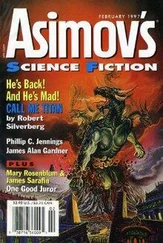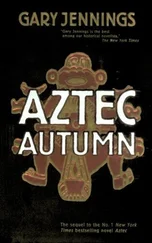Gary Jennings - Aztec
Здесь есть возможность читать онлайн «Gary Jennings - Aztec» весь текст электронной книги совершенно бесплатно (целиком полную версию без сокращений). В некоторых случаях можно слушать аудио, скачать через торрент в формате fb2 и присутствует краткое содержание. Жанр: Старинная литература, на английском языке. Описание произведения, (предисловие) а так же отзывы посетителей доступны на портале библиотеки ЛибКат.
- Название:Aztec
- Автор:
- Жанр:
- Год:неизвестен
- ISBN:нет данных
- Рейтинг книги:4 / 5. Голосов: 1
-
Избранное:Добавить в избранное
- Отзывы:
-
Ваша оценка:
- 80
- 1
- 2
- 3
- 4
- 5
Aztec: краткое содержание, описание и аннотация
Предлагаем к чтению аннотацию, описание, краткое содержание или предисловие (зависит от того, что написал сам автор книги «Aztec»). Если вы не нашли необходимую информацию о книге — напишите в комментариях, мы постараемся отыскать её.
"Anyone who reads, anyone who still lusts for adventure or that book you can't put down, will glory in Aztec."--Los Angeles Times
Aztec
Aztec
Aztec — читать онлайн бесплатно полную книгу (весь текст) целиком
Ниже представлен текст книги, разбитый по страницам. Система сохранения места последней прочитанной страницы, позволяет с удобством читать онлайн бесплатно книгу «Aztec», без необходимости каждый раз заново искать на чём Вы остановились. Поставьте закладку, и сможете в любой момент перейти на страницу, на которой закончили чтение.
Интервал:
Закладка:
"In the conversing," he said, "I would ask that you spend some effort on trying to correct her Mexícatl accent. You yourself picked up our Texcóco speech so quickly. Do encourage her to speak more elegantly, Head Nodder."
"Yes, my lord. I will try."
He went on, "Your Lord Teacher of Word Knowing tells me that you have also made quick and admirable progress in the art of picture writing. Could you perhaps spare any other time to put that ability to a practical use?"
"To be sure, my lord!" I exclaimed eagerly, ardently. "I will make time."
Thus I finally began my career as a scribe, and it was thanks in large measure to Jadestone Doll's father Ahuítzotl. Immediately upon being crowned Uey-Tlatoani of Tenochtítlan, Ahuítzotl had dramatically demonstrated his prowess as a ruler by declaring a war against the Huaxteca of the coast to the northeast. Personally leading a combined army of Mexíca, Acolhua, and Tecpanéca, he had waged and won the war in less than a month. The armies brought back much booty, and the defeated nation was, as usual, put under annual tribute. The plunder and the yearly levy were to be divided among The Triple Alliance as was customary: two-fifths each to Tenochtítlan and Texcóco, one-fifth to Tlácopan.
The job Nezahualpili gave me was to draw up a ledger book listing the tribute items received from the Huaxteca, and those yet to come, and then also to enter the various items—turquoise, cacao, cotton mantles, skirts and blouses, cotton cloth in bulk—in other ledgers which kept account of the goods as they were stored in various Texcóco warehouses. It was a task that exercised my knowledge of both picture writing and arithmetic, and I threw myself into it with great pleasure, with a conscientious determination to do it well.
But, as I have said, Jadestone Doll also had use for my abilities, and called me in again to command that I renew my search for and my sketching of "handsome men." She also took that opportunity to complain about the palace sculptor's lack of ability.
"As my Lord Husband allowed, I ordered this statue, and I gave precise instructions to that old fool of a sculptor he sent. But look at it, Fetch! A monstrosity."
I looked at it: a life-sized male figure sculptured in clay, painted in lifelike colors and baked to hardness. It depicted no god of the Mexíca that I could recognize, but there was something familiar about it.
"The Acolhua are supposed to be so expert in the arts," the girl went on, with disdain. "Know this, Fetch! Their avowed master sculptor is woefully inept compared to some far less renowned artists whose work I have seen back home. If Pixquitl does not do my next statue better than this one, I shall send to Tenochtítlan for those Mexíca unknowns, and put him to shame. You go and tell him so!"
I rather suspected that the lady was merely preparing an excuse to import not artists but some former lovers whom she fondly remembered. Nevertheless, as commanded, I went and found the palace sculptor Pixquitl in his studio below ground level. It was clamorous with the roar of the baking kiln's fire, the stone hammering and chiseling and chipping of his students and apprentices. I had to shout to make him hear Jadestone Doll's complaint and threat.
"I did my best," said the elderly artist. "The young queen would not even tell me the name of her chosen god, so that I could refer to other statues or painted pictures of him. All that I had to work from was this."
And he showed me a chalk drawing on bark paper: my own picture of Yeyac-Netztlin. I was extremely puzzled. Why should Jadestone Doll have ordered the statue of a god—whichever god it was supposed to be—and order it made in the likeness of a mere and mortal swift-messenger? But, in expectation that she would snarl at me to mind my own business, I did not ask her.
In my next delivery of drawings, I deliberately included, and not entirely in facetious spirit, a picture of Jadestone Doll's own legitimate husband, the Revered Speaker Nezahualpili. She gave it and me only a scornful sniff as she thrust it to one side. The picture she chose that time was one of a young under-gardener at the palace, Xali-Otli by name, and it was to him that I gave her ring and her instructions the next day. He, like his predecessor, was only a commoner, but he spoke Náhuatl with the Texcóco accent, and I hoped—since I would again be excused for a while from attendance upon the lady—that he would continue the refining of her speech, as Nezahualpili desired.
When I had finished the Huaxteca tribute entries, I delivered the ledger lists to the under-treasurer in charge of such things, who highly praised my work to his superior, the Snake Woman, and that Lord Strong Bone in turn was kind enough to give a good report of me to Nezahualpili. Whereupon the Revered Speaker sent for me to ask if I would like to try my hand at the very same sort of work you are doing, reverend friars. That is, to take down in writing the words spoken in the chamber where the Uey-Tlatoani met with his Speaking Council, and in the hall of justice where he gave audience to lesser Acolhua bringing requests and complaints.
Naturally I took on the job with gleeful enthusiasm and, though at first it was not easy and I made mistakes, I eventually earned plaudits for that work too. I must say immodestly that I had already attained considerable fluency, proficiency, and accuracy in setting down my pictures. Now I had to learn to do the symbols swiftly, though of course I could never have become so rapid a scribe as any of you, my lords. In those council meetings and receptions of supplicants, there was seldom a moment when somebody was not speaking words to be recorded, and often there would be several persons talking at once. Fortunately for me, the system was—like yours—to have two or more experienced scribes simultaneously at work, so that what one of them missed another would probably catch. I early learned to set down only the symbols recording the most important words of any person's discourse, and those only in sketchy outline. Afterward, at my leisure, I would strive to recall and insert the substance between, then make a clean recopying of the whole, and add the colors that made it fully comprehensible. That method not only improved my rapidity of writing, it improved my memory as well.
I also found it useful to invent a number of what I might call summary symbols, into which were compressed an entire procession of words. For example, I would put down just one little circle, representing an open mouth, for the lengthy preface with which every man or woman began every least remark to the Uey-Tlatoani: "In your august presence, mixpantzinco, my Lord Revered Speaker Nezahualpili..." If anyone talked alternately of recent and past events, I differentiated between them by drawing alternately the simple symbols that represented a baby and a vulture. The baby, you see, stood for "new" and identified the recent events. The vulture, being bald-headed, stood for "old" and identified the past events.
Ah, well. All this reminiscing may be of some professional interest to fellow scribes like yourselves, reverend friars, but in truth I speak of those things because I am loath to speak of other things—like my next summons to the chambers of the Lady Jadestone Doll.
"I require a new face," she said, though we both knew that it was not any face she required. "And I do not wish to wait while you collect a new series of drawings. Let me look again at those you have already done." I brought them to her and she went rapidly through the papers, giving each a mere glance, until she stopped and said, "This one. Who is he?"
"Some slave I have seen about the palace," I told her. "I believe he is employed as a litter bearer."
"Fetch!" she commanded, handing me her emerald ring.
Читать дальшеИнтервал:
Закладка:
Похожие книги на «Aztec»
Представляем Вашему вниманию похожие книги на «Aztec» списком для выбора. Мы отобрали схожую по названию и смыслу литературу в надежде предоставить читателям больше вариантов отыскать новые, интересные, ещё непрочитанные произведения.
Обсуждение, отзывы о книге «Aztec» и просто собственные мнения читателей. Оставьте ваши комментарии, напишите, что Вы думаете о произведении, его смысле или главных героях. Укажите что конкретно понравилось, а что нет, и почему Вы так считаете.











